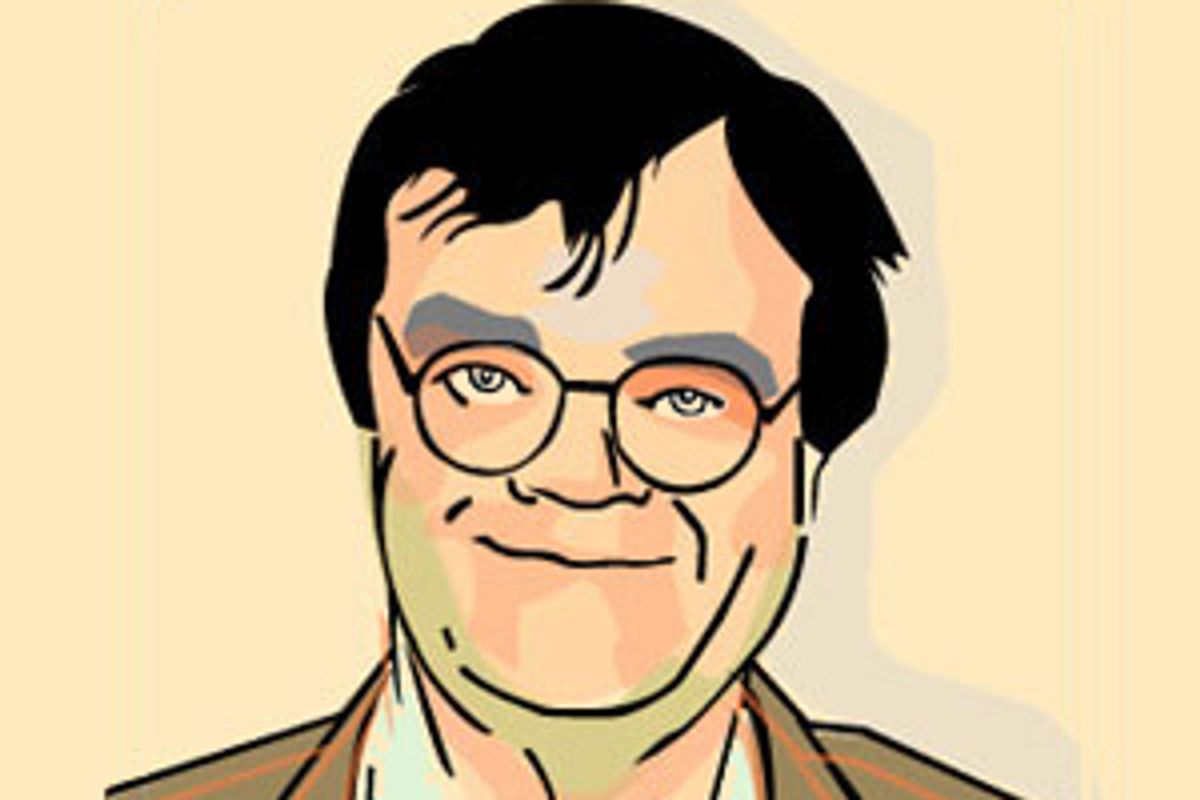Once when I was teaching a composition class at the university, I flew back from New York for class and neglected to get back on Central Standard Time. I came bustling into the classroom and walked to the front, took off my coat, set my briefcase on the table, smiled at the students assembled, and was about to open my mouth and start talking about the importance of structure in comic writing and then something struck me as Not Right. Familiar faces were missing. I leaned down and said to a girl in the front row, "This isn't composition, is it." She said, "No, it's math." "Good," I said. "That's what I thought." And I picked up my briefcase and coat and headed for the exit, as a young man with a crewcut and clear-rimmed glasses arrived and set his briefcase on the table. He was the math guy. Not me. And he knew more about structure.
A simple mistake, one that anyone could make, and isn't that true of all of them? Divorce, episodes of lousy parenting, dumbhead investments, negligence behind the wheel -- it's all too human, and you have to learn how to admit failure and walk away from it and not torment yourself. Sometimes the remorse is worse than the offense.
It is invigorating to realize you've been dead wrong about something. That's why we read history. It's an antidote to smug self-righteousness, which makes us insufferable. You learn about this from books. I can't think of any movie or song that changed my mind about anything, but books of history certainly have.
You sit down and read about the temperance movement of the 19th century, which brought about Prohibition, which you always thought was a foolish attempt by blue-nosed puritans to repress bonhomie, which was the view of the satirists of the '20s, but there is another point of view: The temperance cause was a protest movement by women who, having been shut out of higher education and relegated to menial jobs, were economically dependent on men and therefore terribly vulnerable to a man's alcoholism. The temperance crusader Carrie Nation, famous for busting up saloons with a hatchet, was the wife of a raging alcoholic who had destroyed her life. The Women's Christian Temperance Union, which you had thought of as a joke, has certain heroic dimensions and helped pave the way for women's suffrage.
It's good for an old liberal like me to read history and recognize that Eisenhower was no dolt and Adlai Stevenson was no giant. And to read about Joe McCarthy and realize that, opportunist and blowhard that he was, he was hardly the embodiment of evil that we liberals cherished as an enemy. We made the people he attacked into heroes but McCarthyism was very small potatoes. Alger Hiss was not the victim of a witch hunt; he was a witch. The big story was taking place in Russia and Eastern Europe, in China, and in Cuba, places where evil ruled with an open hand, but a great many Democrats refused to see it. This refusal was a reaction against anti-communists such as Richard Nixon -- if he said the sun rose in the east, then we would look off to the west and maybe build mirrors there so as to be able to argue the point -- and this gave the Democratic Party a reputation for appeasement that has crippled us ever since.
And now something similar is happening to Republicans. They are following the Current Occupant down a road that will be disastrous to them for years to come. They are defending the indefensible. If they could put forth a few more truth tellers like Sen. Chuck Hagel, they could spare us from further disaster, such as the long-rumored forthcoming attack on Iran, a military adventure that this country cannot afford. The same people who got us stuck in one mess are planning another one. Seymour Hersh's excellent articles in the New Yorker point toward that in a particularly authoritative way.
It is a time for some patriots to rise above politics and behave like a jury. The political scrum is boisterous and tribal and fun for one and all, but what is needed now is sobriety of the sort that you and I would bring to a criminal trial. You sit in the jury box and make yourself focus on the facts. Ignore the rhetoric, don't buy into the story line you're offered: Your decision will have painful consequences, so be wise.
(Garrison Keillor's "A Prairie Home Companion" can be heard Saturday nights on public radio stations across the country.)
© 2007 by Garrison Keillor. All rights reserved. Distributed by Tribune Media Services, Inc.



Shares